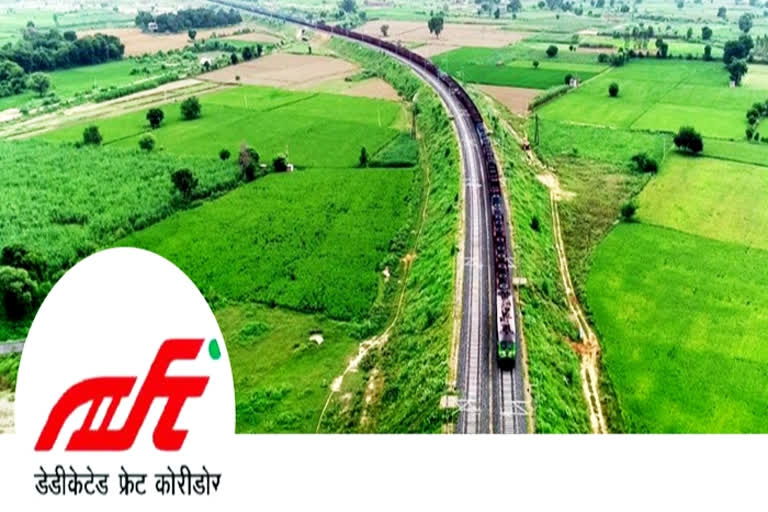New Delhi: In a new development towards the vision of Aatmanirbhar Bharat (Self-Reliant India), the Dedicated Freight Corridor Corporation India Limited (DFCCIL) will give the work of the signalling on 417 km route of the Eastern Dedicated Freight Corridor (EDFC) to Indian companies after it terminated the contract with the Chinese firm, officials said on Saturday.
The DFCCIL also plans to float the fresh tender for the remaining part of the project by the end of July or in August this year. The move by the DFCCIL promotes the ambitious project of Prime Minister Narendra Modi's 'Make in India'. The remarks came a day after the DFCCIL terminated the tender worth Rs 471 crore with the Beijing National Railway Research and Design Institute of Signal and Communication Group Company Limited (BNRRDISC) due to non-performance for signalling on 417 km route of the EDFC.
Anurag Sachan, MD of the DFCCIL told reporters, "This part of our project was funded by the World Bank and this project was given to a Chinese company by following the World Bank's procedure.
Read:|Defence corridors will reduce India's reliance on imports and promote exports: MoS Naik
"Now, as we have terminated this contract and we have decided to complete it with our railway party," he said. Sachan further said, "As the tender has been terminated now, we do not need to go to the World Bank and we have put the terms and conditions in such a way that we will be able to give this contract to some Indian players."
The project was awarded to the Chinese firm in 2016 for the signalling and telecommunication work in 417 km long Kanpur-Deen Dayal Upadhyay section of the Eastern Dedicated Freight Corridor (EDFC). The contract was awarded to the Beijing National Railway Research and Design Institute in June 2016.
According to the DFCCIL officials, even after four years, the progress in the project was only 20 per cent. DFCCIL sources said that the issues that led to the termination of the project were reluctance by the company to furnish technical documents, as per the contract agreement, such as the logic design of electronic interlocking, non-availability of their engineers and authorised personnel at the site was a serious constraint.
